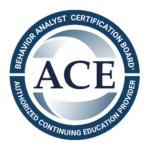For Step by Step School, communication is one of the most important skills for our pupils to develop. Communication is central to psychological, social and emotional wellbeing, and academic progress. Pupils at Step by Step School have a range of needs. Therefore, it is essential that each pupil is seen as an individual who has communication methods tailored to their needs.
The school’s role is to support pupils to engage in the understanding (receptive) and use of (expressive) language and social communication. At Step by Step School this is achieved by providing a communication supportive environment using a Total Communication approach.
For more information please see here.
Pupils with autism typically experience difficulties with social communication, social interaction, and social imagination. Every individual will experience different challenges, and these can include difficulties with understanding verbal communication, initiating interactions with peers, sharing imaginative play, understanding gestures and body language and many other essential skills.
Social skills play a fundamental role in our interactions with the world. It is important for pupils to develop their confidence in using these skills so that they can thrive both in and out of school, and as they transition into adulthood. At Step by Step School, the development of social skills is a priority learning area and is embedded throughout all phases of the curriculum.
Every pupil at Step by Step School has a diagnosis within the Autism Spectrum and behavioural issues are likely to arise directly from their conditions. Behaviours that challenge are well understood by staff and strategies for dealing with them form a major part of the school’s curriculum.
Step by Step School’s approach to teaching and understanding behaviour is based on the principles of Applied Behaviour Analysis (ABA). Behaviour analysis studies events in an individual’s environment in order to understand and explain behaviour. All behaviour is considered to serve a function for that individual. We feel that with a good understanding of what this function is, we can better support our pupils.
The school sets consistent expectations for pupils, and these are upheld at all times. Expectations are, however, set with the individual pupil in mind. They are dependent on the pupil’s level of learning, age, behaviour plan and behaviour history. Pupils learn to develop positive attitudes to learning through experiencing a positive teaching environment. Learning is always centred on the pupil’s individual motivations.
At times, it can be necessary for staff to use positive handling techniques to support behaviours that challenge in a safe way. Team Teach is a positive behaviour management strategy that is used at Step by Step School. The positive behaviour management strategies that Team Teach develops and promotes include personal safety, communication, diversion and verbal and non-verbal de-escalation techniques. These techniques focus on dealing with behaviours that challenge, which aims to reduce the need for physical intervention. As a last resort, we also are trained in positive handling techniques to resolve conflicts in ways that are safe, and which provide opportunities for repair and reflection for everyone involved. This helps to promote positive relationships in our school.
Team Teach are certified by the BILD ACT Association of Certified Training, complying with the Restraint Reduction Network Training Standards, a requirement for NHS commissioned services.
All our staff are trained in Team Teach and the school has certified Team Teach trainers onsite, who provides initial training, ongoing refreshers to staff as well as discussions about how best to support the individuals.
For more information please click here.
At Step by Step School, we believe that our pupils have a right to access and become part of the local community. Community participation is embedded throughout our curriculum and pupils access regular weekly trips such as horse riding, trampolining and swimming. As pupils progress through the school and start to gain confidence when out in the community, they start to use local facilities such as Blacklands farm, local supermarkets and coffee shops. Once pupils have moved into years 10, 11 and into the sixth form provision, they access work experience opportunities such as woodwork, volunteering in a charity shop and the local Cats Protection centre.
Pupils with Autism Spectrum diagnoses experience particular challenges with functional independence. We know that for those on the spectrum, these skills are less likely to be developed through observational learning. Therefore, Step by Step School recognises the importance of teaching independent skills for all our pupils, at a level that is appropriate for their age and ability.
By teaching daily living skills, we help to prepare pupils for life beyond Step by Step School, including independent living, and vocational opportunities. We focus on teaching personal care routines, dressing, daily routines such as a morning routine, household chores and making a bed.




Copyright © 2024 Step by Step School | Step by Step is a registered charity 1091258.